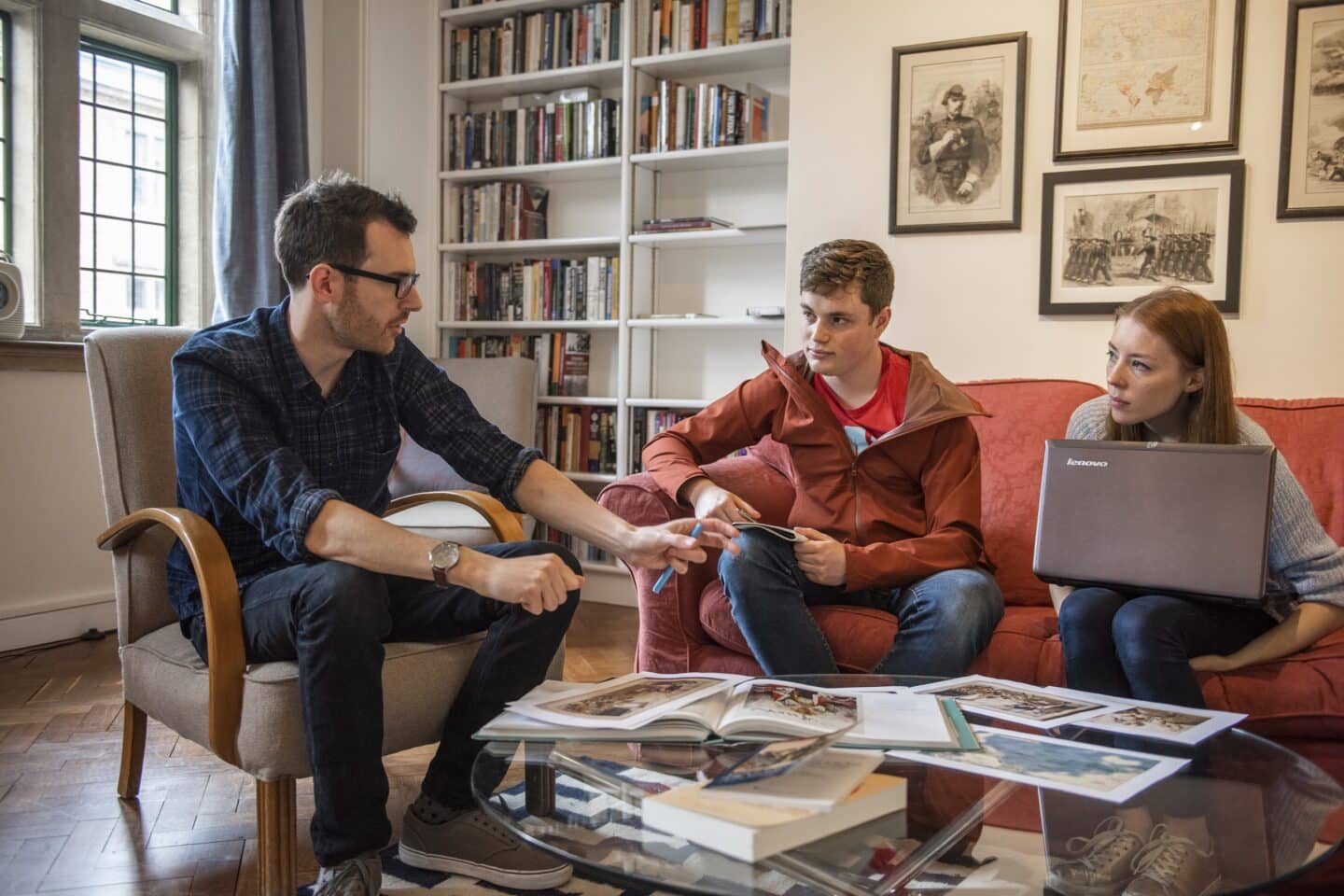As a visiting student at the University of Oxford and St Peter’s College, you will have the opportunity to engage with a diverse and enriching neuroscience curriculum. You can attend neuroscience-related lectures across several university programmes and departments, participate in the distinctive college tutorial system, and undertake a lab-based rotation project in one of Oxford’s neuroscience labs.
Academic activities
The visiting student programme in neuroscience combines formal group-based and tutorial teaching with the chance to pursue a lab rotation project or an extended essay. This unique combination of teaching approaches and hands-on research allows students to deepen their understanding of neuroscientific concepts and develop valuable academic skills.
Group teaching
Visiting students attend neuroscience lectures alongside second and third-year undergraduate students, with the additional option of attending specific lectures or modules from graduate programmes in neuroscience. With guidance from their tutor, students can tailor their lecture schedule to match their interests and prior academic experience, ensuring a focused and personalised approach to their studies at St Peter’s College.
Tutorials
Besides group teaching, the programme includes weekly tutorials each term (eight weeks per term). These small-group sessions, typically with three students, provide an opportunity to explore a range of neuroscientific concepts in greater depth. Tutorials involve discussions of written assignments or presentations prepared during the week. Topics covered may include but are not limited to neurophysiology, sensory and motor systems, and neuropathology. Additionally, students are supported and assessed in developing their academic writing and presentation skills.
Research opportunities
In Hilary and/or Trinity term, visiting students can undertake a lab-based rotation project. This includes writing a brief research proposal at the start and producing a final report or presentation upon completion of the project. Alternatively, students may choose to write an extended essay, which allows them to investigate a neuroscience topic in greater depth and requires the integration of primary sources. Both options are designed to help students refine their research, analytical, and communication skills.
The Oxford Neuroscience community
The University of Oxford is home to a dynamic neuroscience community, spanning nearly all neuroscientific disciplines. Alongside departmental seminars and local neuroscience conferences, the Oxford University Neuroscience Society, a student-led organisation, offers weekly talks, workshops, and social events. Visiting students are encouraged to participate in these activities, which provide further opportunities to connect and engage with researchers and peers in neuroscience.
Overall, the Visiting Students in Neuroscience Programme at St Peter’s College offers a well-rounded experience, combining academic rigour with opportunities for personal and professional growth. By engaging in lectures, tutorials, and research projects, and becoming part of Oxford’s neuroscience community, students can enhance their knowledge and skills in a supportive and stimulating environment.
Topics covered during lectures and/or tutorials may include:
- Gross structure of the CNS
- Basic neurophysiology
- Sensory systems (Olfaction and gustation, Audition, Vision, Touch and Nociception)
- Motor systems (Motor pathways from cortex to muscle, cerebellum, basal ganglia)
- Cognition (Thalamus and cortex, Limbic system, Learning and memory)
- Neuropathology and brain disorders
Skills strengthened and assessed:
- Critical reading
- Scientific writing
- Scientific methods
- Presentation skills

